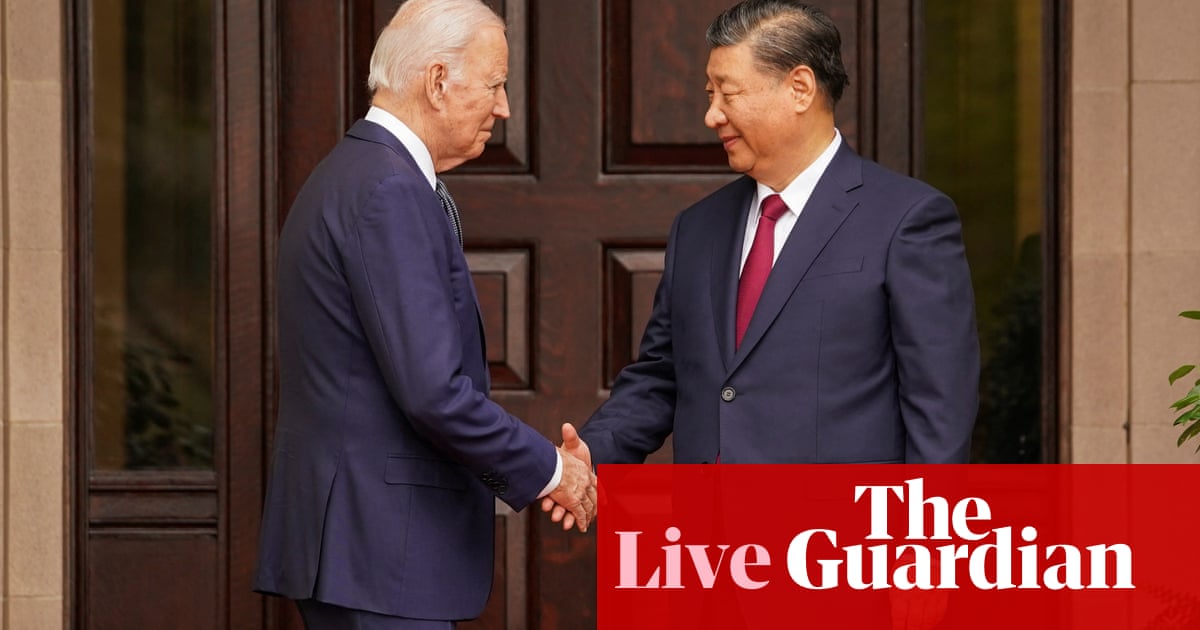
China needs to improve the way it tells the world stories about itself, and convince people the ruling party is striving for the happiness of all Chinese people, Xi Jinping has said.
The Chinese president’s comments to a Communist party meeting on Tuesday come amid the country’s growing isolation in the global community, and tension with international media, largely driven by international concerns over human rights abuses.
Suggesting continued concern over Beijing’s negative image, Xi said it was crucial that China develop a stronger “international voice” which matches its national strength and global status, to present a “true, three-dimensional and comprehensive China” to the world, according to state news agency Xinhua.
“We should strengthen the propaganda and interpretation of the Communist party of China, and help foreign people realise that the Communist party of China [CCP] really strives for the happiness of the Chinese people,” the report cited Xi as saying. The official English translation by Xinhua refers to “publicity” rather than “propaganda”.
While the growing world power has sought to increase its standing on the global stage, relations with many western nations have taken a dive, largely driven by concerns over human rights abuses against ethnic minorities, particularly Muslims in Xinjiang, the crackdown on Hong Kong, aggression towards Taiwan, and last year’s attempts to cover up the early spread of the coronavirus.
Worsening relations with the US and its allies such as Canada, the UK and Australia have seen tit-for-tat trade sanctions, the expulsion or intimidation of foreign press, and increasingly belligerent commentary from China’s “wolf warrior” diplomats, a name referring to combative diplomats who use their platform to aggressively defend China’s policies and disparage opponents.
Margaret Lewis, a professor and China specialist at Seton Hall law school in New Jersey, said China’s ruling class has long explored how to “get its message out to international audiences”, notably through state media channel CGTN, which is broadcast in numerous countries but has also faced penalties by foreign regulators over its conduct.
She said Beijing had a different view of human rights to other nations, which prioritised the right to development over independent human rights. This belief would still be presented in any CCP international messaging.
“This is not a call for greater openness, transparency and accessibility,” she said.
“This is a call for the party state apparatus to put out a more sugarcoated view of what’s happening. Nothing I’ve heard makes this sound like it’s encouraging press freedom. It’s that: you international media should listen more intently to how we, the party state, believe we are helping the people and you should report more ‘objectively’ on our successes.”
Xi’s comments prompted some speculation among analysts that he was calling the “wolf warriors” to tone it down, while beefing up the state’s public relations.
But Lewis said it wasn’t “an either/or”. “You can have ‘good cop, bad cop’ scenarios. You can have the moments of more fiery rhetoric alongside things also presenting a more pleasant and contrived narrative,” Lewis said.
Natasha Kassam, a China analyst with the Lowy Institute in Australia, said Beijing’s leadership was reading the same data as anyone else, and could see international opinion had “moved away pretty decisively” in the past year.
“Its economic relationships haven’t necessarily been harmed by the negativity but clearly there is at least some consideration of whether it’s sustainable to have such a negative image of China in the world,” said Kassam.
“On some level this is acknowledging that something is wrong and change is needed, but the change is in the message rather than the change in policy.”
The damage to China’s reputation comes at an awkward time, just weeks out from the centenary anniversary of the formation of the CCP. It promises to be a lengthy and bombastic nationwide celebration, but also an opportunity for Xi – who abolished term limits – to cement his leadership.
Kassam said the centenary would be a largely domestic affair but would likely also see greater efforts to delegitimise the voices of foreign critics. She said there was likely also a longer term concern ahead of the 2022 Olympics, and a poor international image harming a “moment of national pride” for China.












